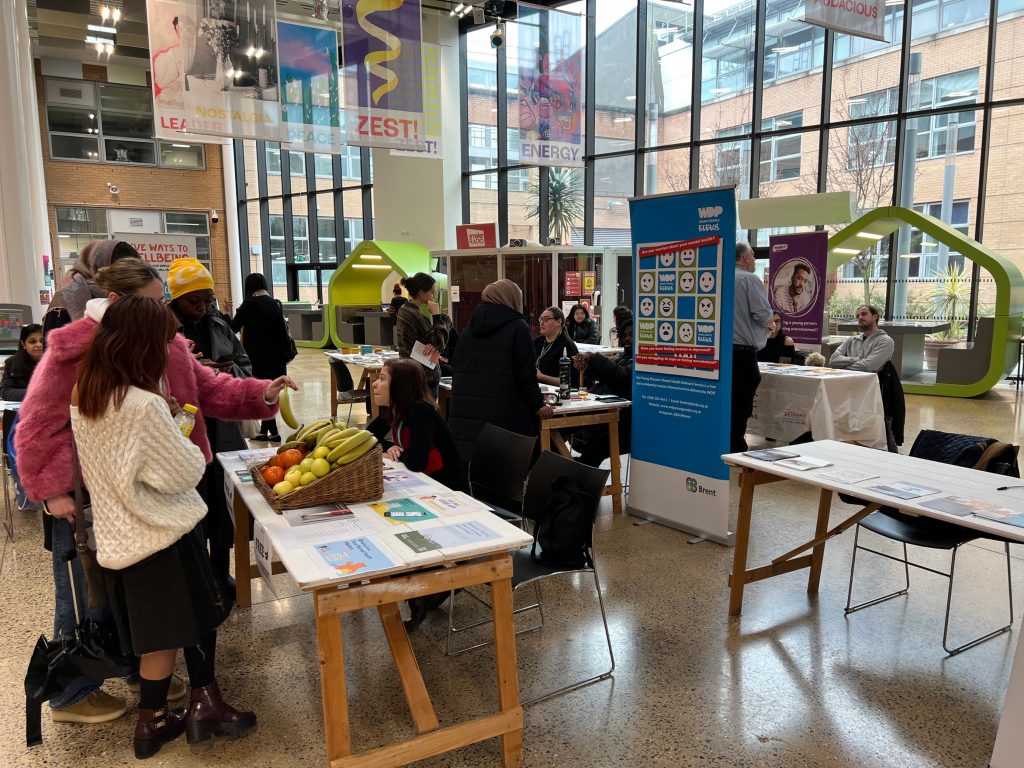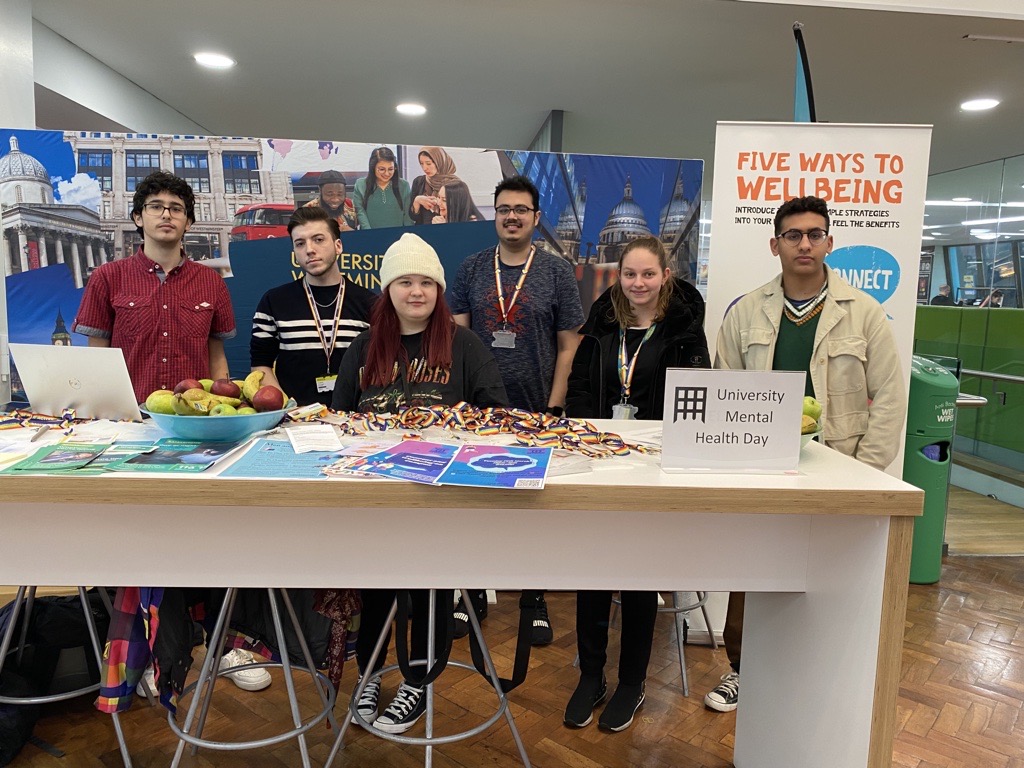Student safety, health and wellbeing are important to us at Westminster. We offer a range of advice, guidance and support services to our students, to help them look after their health and wellbeing and engage fully in their personal and academic journey.
We spoke with Hafsa Mota and Natalia Alas, two of our Student Wellbeing Ambassadors who told us more about their role and wellbeing in general at Westminster.
- What does your role as a Student Wellbeing Ambassador involve?
Natalia: Our role as wellbeing ambassadors is primarily to know, promote and encourage different wellbeing services offered by Westminster to students. We aim to help the university with its goal of ensuring healthy wellbeing of all students in all areas – academic, social, and even financial. As ambassadors, we study the wide range of services offered, what they entail, and how students can access them, so we can inform and advise as many fellow students of all the support and services available to them.
We are also involved in organising events and occasionally designing promotional materials such as flyers, posters and invitations to advertise specific services, such as the free gym and the Feeling Good app. The Feeling Good app is a positive mental wellbeing app that accompanies students through their journey at Westminster. The app is free and available to all students with a smartphone. It is designed to support wellbeing and resilience helping students bounce forward and become mentally stronger and confident.
- What have you enjoyed most about being a Student Wellbeing Ambassador?
Hafsa: I have enjoyed having the opportunity to be a Student Wellbeing Ambassador, meeting and working with many people from different countries, courses and campuses. I have learnt and improved in many areas such as confidence and communication to name a few.
Natalia: What I have enjoyed the most is working in a team with such caring students and staff. Hearing about their personal experiences regarding wellbeing has been amazing. Working as part of a team to find the best possible ways to keep promoting wellbeing services and raise awareness and engagement has been an extremely rewarding experience.
- Tell us about any activities you have taken part in as part of the Wellbeing Service or as a Student Wellbeing Ambassador.
Natalia: I have taken part in various events to help promote the Wellbeing Services. These consisted of having pop-up stands at all campuses, speaking with students, handing out flyers and giving out free goodies, to help promote happiness and being healthy. I have designed posters, created QR codes and been part of the project team following brand guidelines and design briefs to promote the Feeling Good App and other student wellbeing services. I have also helped with the recruitment and training of new wellbeing ambassadors.
- What do you think students are most anxious or stressed about when it comes to studying? And how do you think wellbeing at Westminster supports this?
Hafsa: I think students can often become anxious and stressed when thinking about their exams, even when they have done lots of preparation. Wellbeing at Westminster provides a range of support to help students manage their anxiety and stress during exam periods. Support ranges from advice on coping techniques such as breathing exercises, positive thinking and activities that encourage happiness to free counselling, where students can go and speak to a professional about their worries or anything they are struggling with.
- What would you advise students to do to help look after their health and wellbeing?
Hafsa: Do what makes you happy, don’t worry if others don’t like it, you’re all that matters. Enjoy what makes you feel good and take care of yourself e.g. skincare, healthy eating, going to events, being outdoors and listening to music etc.
Natalia: Find the right balance for you. Find a balance where every time you feel overwhelmed with academic work or life, you have an outlet such as hanging out with your friends, journaling, going for a walk, etc. All too often, whenever there is pressure such as a deadline for an assignment, we overwork ourselves despite feeling overwhelmed and end up feeling burnt out. Experiencing this sort of burnout can have consequences on our mental health, wellbeing and health in general. You should give yourself time to relax and recharge to perform at your best. Always try to balance responsibilities with things you enjoy doing so you don’t end up feeling burnt out.
Eat well and drink water. Your nutrition affects so many things so it’s important that wherever possible, you try to eat healthy and drink water.
Be proactive in asking for help. If you proactively seek help, you will find multiple resources that you can take advantage of free of charge.
To learn more about the support available at Westminster, watch our Student Health and Wellbeing at the University of Westminster video and read our Looking after your Health and Wellbeing blog post.
About the University of Westminster
As one of the most diverse universities in the UK, we are a global university with London energy with more than 19,000 students from 169 countries. To find out more about our courses, visit the University of Westminster website.
- MORE 2025: Showcasing the Future of Architecture and Cities - October 27, 2025
- Opportunities at Westminster: My journey as a Student Ambassador - October 3, 2025
- OPEN 2025 Celebrating Talented Students - July 23, 2025


